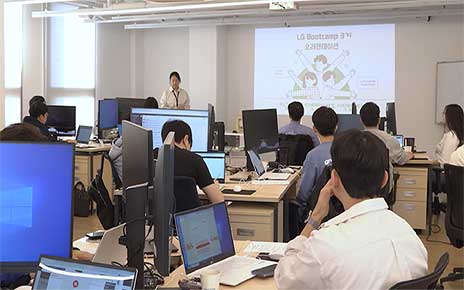We use cookies, including cookies from third parties, to enhance your user experience and the effectiveness of our marketing activities. These cookies are performance, analytics and advertising cookies, please see our Privacy and Cookie policy for further information. If you agree to all of our cookies select “Accept all” or select “Cookie Settings” to see which cookies we use and choose which ones you would like to accept.
LG Home Appliance Factory in United States Latest to Receive Prestigious ‘Lighthouse’ Status
-
extension : ziplg-home-appliance-factory-in-united-states-latest-to-receive-prestigious-lighthouse-status.zip
-
extension : imglg-home-appliance-factory-in-united-states-latest-to-receive-prestigious-lighthouse-status-Desktop.jpg
-
extension : imglg-home-appliance-factory-in-united-states-latest-to-receive-prestigious-lighthouse-status-02.jpg
-
extension : imglg-home-appliance-factory-in-united-states-latest-to-receive-prestigious-lighthouse-status-03.jpg
-
extension : imglg-home-appliance-factory-in-united-states-latest-to-receive-prestigious-lighthouse-status-04.jpg
LG Electronics Tennessee Plant is Selected as Industry’s First U.S.
Home Appliance Lighthouse Factory by World Economic Forum

SEOUL, Jan. 16, 2023 — LG Electronics’ (LG) home appliance manufacturing plant in the United States has been selected as a world-leading Lighthouse Factory by the World Economic Forum (WEF)
The million-square-foot factory in Clarksville, Tennessee – the U.S. production base for LG’s award-winning washers and dryers – is the industry’s first home appliance plant in the United States to join the WEF’s global network. Also, it is the company’s second Lighthouse Factory, following on the heels of the LG Smart Park in Changwon, South Korea, which was selected by the WEF last year.
A “Lighthouse Factory” is recognized by the WEF for its role in shaping the future of manufacturing through the integration of Internet of Things (IoT), big data, artificial intelligence (AI), robots and other Fourth Industrial Revolution technologies. Since 2018, the WEF has selected and added global factories to its network twice a year.
LG’s world-class autonomous factory in Tennessee utilizes advanced digital technologies from AI and big data to IoT and robots. Completed at the end of 2018, the facility now operates three production lines for front-load and top-load washing machines and dryers. With an annual production capacity of 1.2 million washers and 600,000 dryers, the plant proactively responds to changing North American demand through local production. More than 900 people work at the LG home appliance factory in Montgomery County, Tenn.
Featuring a complete integrated production system streamlined process to supply impeccable products to customers on time, each line carries out the entire manufacturing process of new models from making the parts to assembly and packaging. In addition, strict quality conditions are applied to all the assembly lines to heighten quality across the board, from parts to finished products.
The LG Tennessee factory boasts a fully autonomous logistics system with 166 automated guided vehicles (AGVs) that transport parts around the plant. With three times more AGVs than the LG Smart Park, these robots improve overall productivity by freeing up people for other tasks.
With the integration of parts production such as metal press processing, plastic injection molding, and painting – including LG’s own intelligent injection molding system – the company has increased component productivity by 21 percent.1 In addition, the plant recognizes and responds in advance to potential productivity issues through an advanced detection system. By applying data-based AI technology that accurately predicts washing machine performance, the number of tests and energy consumed during testing are reduced by 22 percent, while the defect rate has been reduced by more than 61 percent via quality optimization.2
The plant is also maximizing workplace safety and operational efficiency by using robots for complicated, potentially dangerous tasks, such as assembling and lifting heavy parts and welding.
To further improve efficiency, LG plans to establish a 5G connectivity network across the facility in the second half of this year, creating an environment where its many AGVs can transport materials faster and more accurately based on stable, uninterrupted communication. LG will also introduce Autonomous Mobile Robots that navigate the expansive facility with ease to enhance its logistics system.
LG’s commitment to sustainability can be seen throughout the Tennessee factory, which transitioned to renewable energy completely already in 2022. The plant also uses a high-efficiency utility infrastructure, which supplies the power, steam and heat necessary to produce LG’s home appliance products with the help of the company’s advanced Building Energy Control (BECON) solution.
“Along with the LG Smart Park, LG’s Tennessee factory represents our unmatched leadership in transforming manufacturing facilities into advanced, futuristic hubs utilizing the most revolutionary technologies,” said Lyu Jae-cheol, president of the LG Electronics Home Appliance & Air Solution Company. “Lighthouse Factory status exemplifies how LG continues to strive for providing differentiated customer experiences through customized manufacturing innovations.”
2 Comparing the number of the test conduction and the field defect rate from the year 2020 to 2022 according to the lighthouse site visit report by World Economic Forum.


